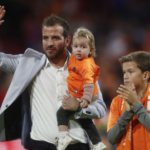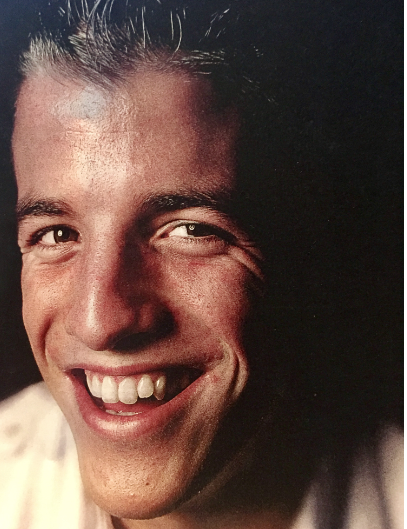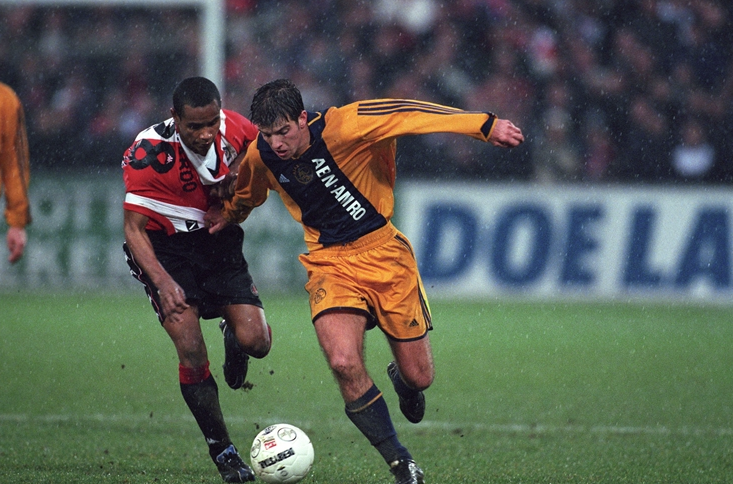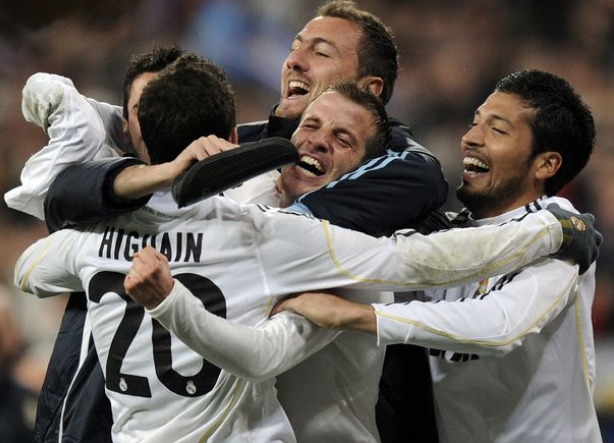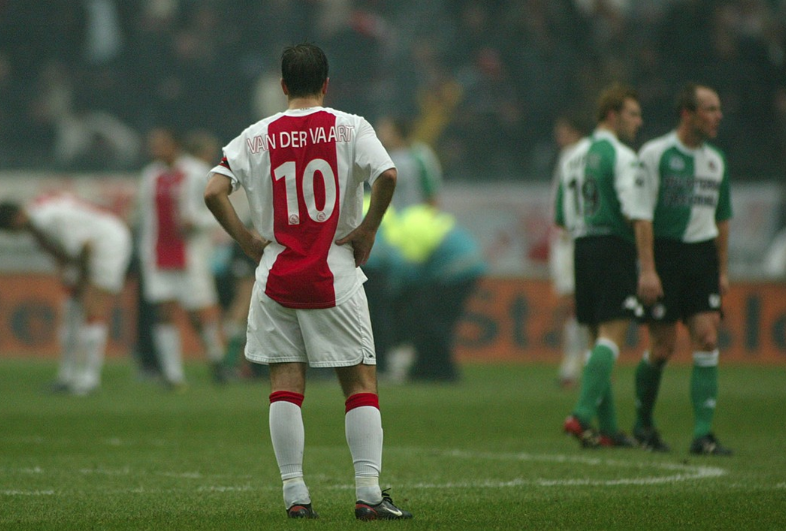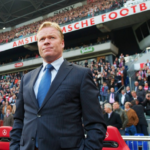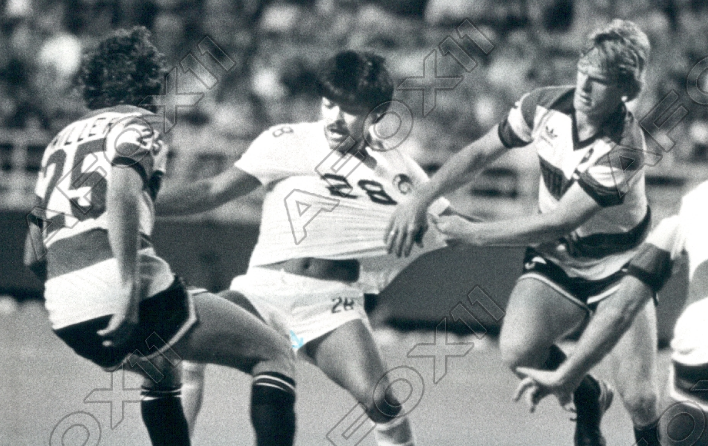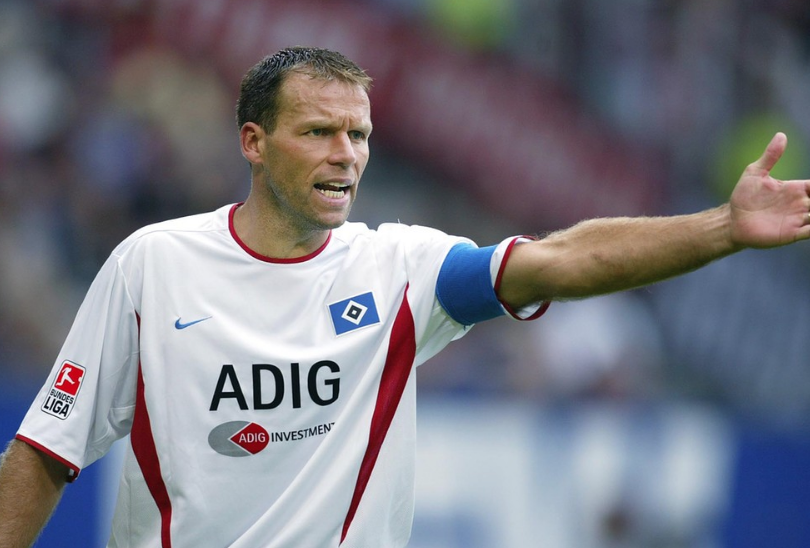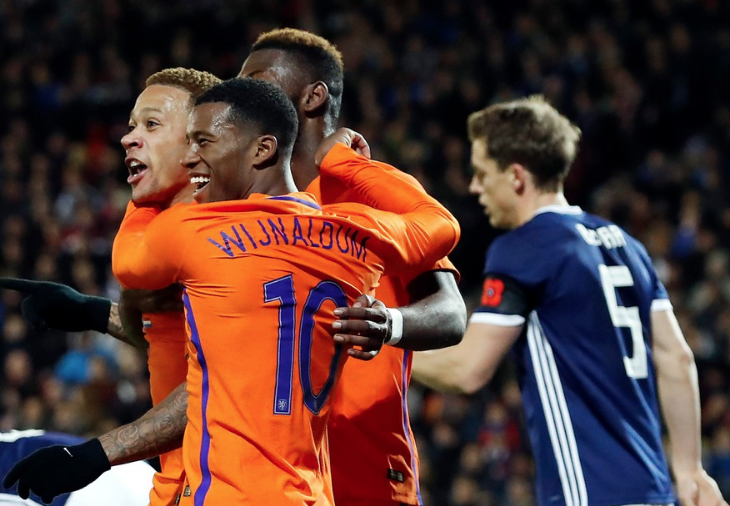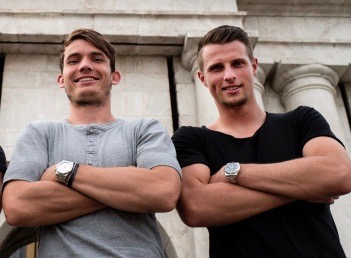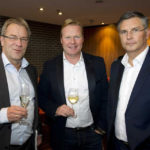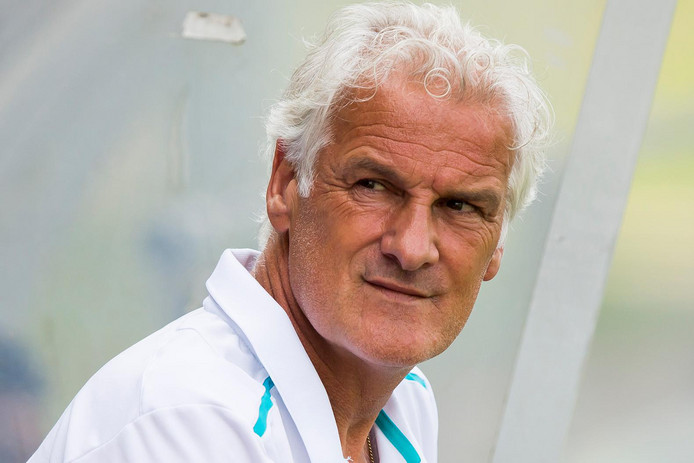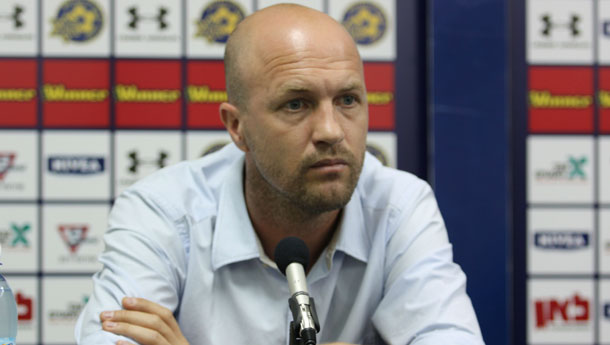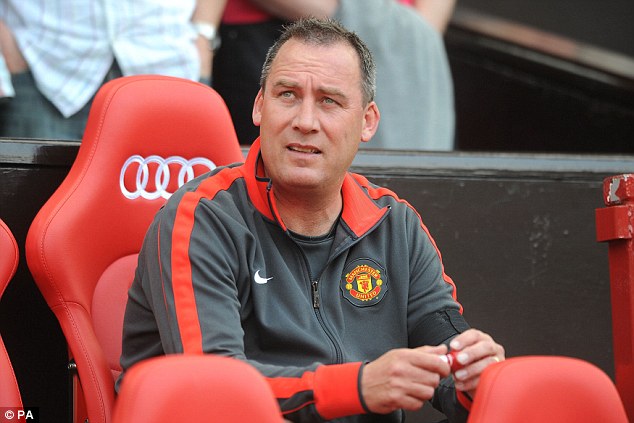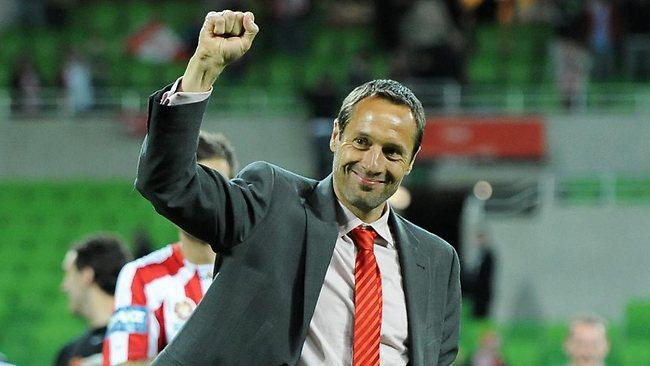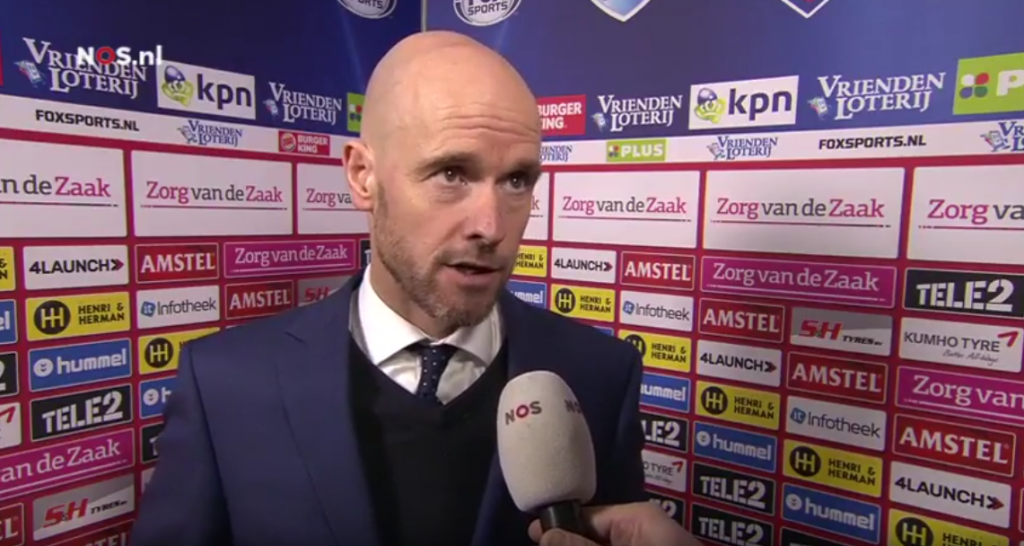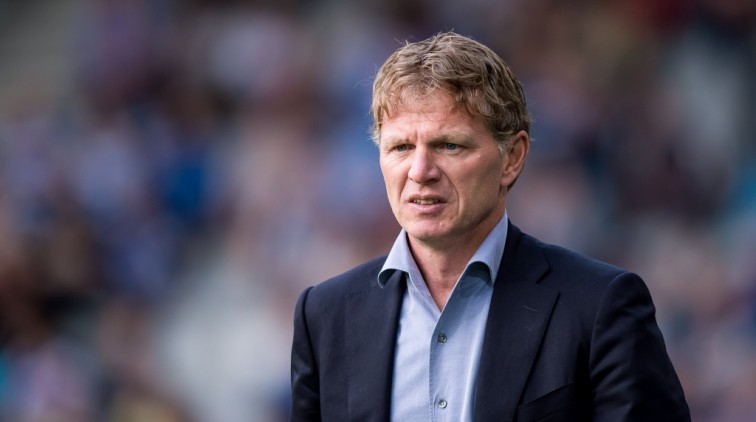Rafael van der Vaart retired from professional football immediately.
A small news item in the papers. Something some people thought had happened already… His last years were a disappointment. For him, for us, for his clubs. The 35 year old seemed done and dusted when he turned 32 already.
He was a mature and brightly talented starter when 17 years old. And he was worn out when he turned 32.
Arjen Robben and Wesley Sneijder became more important for Dutch football and even someone like Mark van Bommel gobbled up more trophies than the mercurial midfielder, but for the afficionados Rafa van der Vaart was the real super star.
It was the European Championship Under 17 where Rafael van der Vaart made his name internationally. In a team with Johnny Heitinga, Robin van Persie, Klaas Jan Huntelaar and Jhonny van de Beukering, Rafael was the big man. The Ajax A1 midfielder was voted Best Player of the Tournament, even if Oranje was ousted at the semi final stage.
The coach of that team was Arno Pijpers. He remembers the jury report, with former Denmark national team coach Moller Nielsen’s comments: :”The Dutch number 10 is a key player in the build up and in the final move of his team.”
Pijpers: “In Holland, we were spoiled with players like him, who could play in every position or line of midfield and attack. We had Cocu, Ronald de Boer, Seedorf and before that Vanenburg, Van ‘t Schip, Mario Been and even before them we had Van Hanegem, Van der Kuylen… playmakers who can play deep or enter into the box and score the winner. But based on those comments, I analysed all Under 17 teams that tournament and indeed… there were no others like Rafael. He was so versatile and so mature at that age.”
In his first season at Ajax 1, at 17, playing on the left side of midfield in Co Adriaanse’s Ajax, he was the best player for weeks on end. The teenager played seasoned Richard Witschge out of the starting eleven and was immediately the man to take the free kicks and corners. Adriaanse would keep track of the performances of his players and in the winter, Rafael was the best player of them all.
He came at Ajax when he was 10 years old. An Open Day. “I played with the Kennemers from Beverwijk and was selected by Ajax. I saw it as not so great news, because I was a PSV supporter. Or better, a Romario supporter. He was and actually still is my hero. People ask me about my fave football moment and for me it’s the Romario hat tricks against Steaua Bukarest. But, as a PSV fan I went to Ajax and the PSV-feeling dissipated quickly, also because Romario left for Spain.”
Jur Zandbergen was Rafa’s youth coach in Beverwijk. “He resembled Romario in his very young years. Where all these kids always scramble and go huddle around the ball, he was always positioned away from the traffic jam and in a good area where eventually, he’d pick up the ball and ran with it until he scored.” Zandbergen guided the youngster towards Ajax. “I told everyone at Ajax, this kid has it all to become a good player. His dexterity, his vision and skills… He looked like his dad. His fad Ramon was a smart and agile player who played 18 seasons as a striker in the first team of Beverwijk.”
John van’t Schip was Rafa’s coach in the Ajax B youth. It was clear that he would be a better player than his peers. “It was remarkable to see how easy you could play the ball into is feet, even when he was marked. He had that air of “gimme the ball and I’ll do something good with it”. And his team mates and opponents were all two years older at the time!”.
When Van ‘t Schip is asked how he formed Van der Vaart, he quickly shakes his head. “No no, a talent like him forms himself. When he came to Ajax, he was already pretty fully formed. We only had to fine tune, re-direct and make him aware of stuff. We worked on his weaker point, mainly. His right foot was not well developed and his starting speed wasn’t great. So in the morning he would work with Laszlo Jambor, the athletics trainer and I would have him in the afternoon to translate it all to his movement on the pitch.”
Hans Westerhof was the Director Youth Academy at the time. Westerhof took over temporarily from Jan Wouters as head coach and it was him who allowed Rafa his debut in Ajax 1. “If I look at Rafael, what stood out is his self criticism and high standards, coupled with a high sense of duty. He would be so precise in everything he did, that really stood out.”
Van’t Schip concurs. “Take the pass and shoot practices. Most players saw this as a bit of fun. And it’s almost unavoidable that balls flew all over the place and first touches were dreadful… Only with Rafael, I never had to tell him to take it serious. As long as I know him, every ball he touches or every pass he gives, he treats it as if it is the key pass in a European Cup finals. This attitude, to treat every pass, cross or shot as the most important one ever, can not be taught. It’s a drive you need to have. For Rafael, these practices were never a burden, he actually enjoyed it.”
Westerhof: “I compared him with a Chinese ping pong pro, who would practice his shot for hours and hour to build that perfect ball feeling. And who is enjoying it. This joy combined with the ambition to be the best was key. If you don’t have that ambition day in, day out, you won’t make it.”
Even at 17 years old, everyone who worked with him will tell you he was as mature as a 25 year old. This was partly due to his stable family background. His family lived in a trailer camp in Holland. A warm nest. His dad traded in scales, his mum is Spanish and immigrated to Holland when she was 6 years old, with her parents. The parents worked for a long time in the steel factories in Holland and went back to Spain after retiring. Van der Vaart: “I see myself as purely Dutch. My grandparents live in Cadiz now. I don’t see a lot of Spanish in me, to be honest. My younger brother has that Spanish temperament. He is also lazy, hahaha.”
His grandfather is extremely proud of him. “He is my biggest promotor and Ajax’ fan in Spain. When Ajax beat Real Madrid in the Champions League, he decided to go into the city all week wearing an Ajax jersey, hahaha. Typical my gramps. The Spanish think only they can play football and my grandfather needed to tell everyone they are wrong.”
Ajax came out of a dark period when Rafael made his way into the first team. Westerhof: “All players we saw coming through in those days, and most were tremendous talents, but all of them had social issues and needed a lot of support. Kids who would have not made it in society without Ajax. Lads who were 15 years old, whose mothers had left. For months. Parents who are drug addicts. Or parents who “sold” kids to the first players agents they met for money.”
Co Adriaanse looks back: “We had two players who were exceptions to the rule. Both Rafael van der Vaart and Cedric van der Gun were talents who also had enough baggage as human beings to deal with the wealth, the media attention, sponsor contracts etc. You have the Frank Rijkaards and the Zinedine Zidanes who were massive football stars and always remained normal. Very nice people. The fame didn’t affect them. But these are exceptions. Rafael never made issues. He would play with Ajax 1 vs Feyenoord and if we asked him to play on Thursday evening with A1 under Danny Blind, he would never moan or complain. He would happily play a top match for the team and inspire the team.”
John van ‘t Schip main issues with Van der Vaart was to make sure the youngster wouldn’t get a football overdose too early. “I wanted him to be a normal 17 year old as well, you know. I forced him to take a day off. We gave Aron Winter one day off per week. He was at the end of his career. We called it old fart day. We gave Rafa one too.”
Another remarkable thing, most of his age group colleagues would try and dazzle with some tricks or a cross behind the standing leg. Not Van der Vaart. “I try and use my technique in a functional way. In a way, I am a controlling midfielder. I will always keep in mind, as a midfielder, that it’s about managing the game. And I know when I can be frivolous and when not. I will never be that players, scoring a 9,5 one match and a 4 the other match. Even if my form dips, I will have value for the team.”
In those days, Co Adriaanse says that Rafael is his “a man before his time”. “He is now 17 years old but plays like a 21 year old… Both mentally and physically.” Which might explain why he had to quit early…
Van der Vaart was happy to play for Ajax. Although he had one other club he felt he would one day represent. “I think I am a typical Barca player. I can play on many positions, I have flair. I think I can fit in that Barca culture.”
That would never happen of course. The young Ajax talent made a decision that had a lot of people frowning. Not Chelsea. Not Barcelona. Not AC Milan. But Hamburger SV signed him. Where he played a tremendous high level. So much so that Bayern Munich tried to sign him until he made his way to Real Madrid where he was presented to the fans by Alfredo Di Stefano, flanked by his proud grand father. After Madrid, he played two seasons for Tottenham Hotspur, the best two years of his footbal career, the retired Oranje star believes.
Rafael van der Vaart, the first Golden Boy of Europe
| Annual top 3 Golden Boy Award | |||
|---|---|---|---|
| Year | Winner | Runner Up 2 | Number 3 |
| 2003 | RAFAEL VAN DER VAART | Wayne Rooney (Eng) | Cristiano Ronaldo (Por) |
| 2004 | Wayne Rooney (Eng) | Cristiano Ronaldo (Por) | Fernando Torres (Spa) |
| 2005 | Lionel Messi (Arg) | Wayne Rooney (Eng) | Lukas Podolski (Dui) |
| 2006 | Cesc Fabregàs (Spa) | Lionel Messi (Arg) | Anderson (Bra) |
| 2007 | Sergio Agüero (Arg) | Lionel Messi (Arg) | Cesc Fabregàs (Spa) |
| 2008 | Anderson (Bra) | Theo Walcott (Eng) | Sergio Agüero (Arg) |
| 2009 | Alexandre Pato (Bra) | Stevan Jovetic (Mon) | Bojan Krkic (Spa) |
| 2010 | Mario Balotelli (Ita) | Jack Wilshere (Eng) | David De Gea (Spa) |
| 2011 | Mario Götze (Dui) | Thiago Alcántara (Spa) | Eden Hazard (Bel) |
| 2012 | Isco (Spa) | Stephan El Shaarawy (Ita) | Thibaut Courtois (Bel) |
| 2013 | Paul Pogba (Fra) | Romelu Lukaku (Bel) | Julian Draxler (Dui) |
| 2014 | Raheem Sterling (Eng) | Divock Origi (Bel) | Marquinhos (Bra) |
| 2015 | Anthony Martial (Fra) | Kingsley Coman (Fra) | Héctor Bellerín (Spa) |
| 2016 | Renato Sanches (Por) | Marcus Rashford (Eng) | Kingsley Coman (Fra) |
| 2017 | Kylian Mbappé (Fra) | Ousmane Dembélé (Fra) | Marcus Rashford (Eng) |

